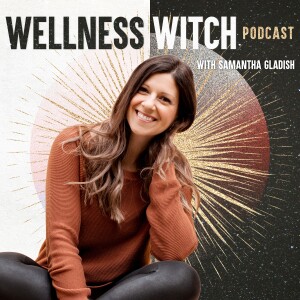
Hormones, Diet, Detox - What Your Genes Say About You
 2020-01-14
2020-01-14
What can a genetic test tell you about yourself? Get ready to have your mind blown as one of the smartest women that I know, Dr. Robyn Murphy, talks about genetic testing and the things that you can learn from getting a genetic test.
You can find all the info and links about this episode at https://holisticwellness.ca/episode89
Topics Discussed in this Episode:
What it means to test your DNA The types of genetic testing The things that we can learn by testing our DNA The connection between the gallbladder, estrogen, and chemical toxicity, and how it relates to genetics The DUTCH test How your diet is impacting your genes The keto diet and whether it’s the best option for you How to know if you’re getting the right amount of nutrients
Key Takeaways:
Your DNA is the code that provides the information for your cells what to make, how to function, and how to respond to the environment. This is passed down through lineage -- you get half of it from your mother, and the other half from your father. The way that the report of your genetic test is delivered is through easy-to-understand terms. It’s more about what the action items are.Sensitivities. Do you have risk factors for celiac disease or non-celiac gluten sensitivity?
Nutrients. What is your individual nutritional need? Are you getting enough B vitamins? Do you need to supplement? Are you getting enough choline? Physical fitness and exercise. What types of exercise do you have more predilection towards? Detox pathways. Hormone health. Obesity risks. Mental wellness. The only food sensitivity that we can really look at with a genetic test is gluten sensitivity. It has to do with how the immune system is responding to the food based on whether there’s a risk for celiac disease or whether there’s non-celiac gluten sensitivity. The methylation pathway is found in every single one of cells for the most part, and it’s what’s responsible for healing our DNA, for repairing our cells and making sure that we have something called SAM (S-Adenosyl methionine), which is used for hundreds of biochemical pathways.
Action Steps:
Get a genetic test and start to understand more about your individual health. Do a follow-up testing to the DUTCH test annually or bi-annually and be mindful of appropriate surveillance as well talking to your healthcare provider for healthy estrogen and hormones. Consider supplementing to help increase your nutrient stores and make sure you’re optimizing to make sure all your cells and biochemical pathways are working properly.
Robyn said:
“The lifestyle genetics, what we’re using this information for, is to determine what specific lifestyle strategies are going to be best for that individual. So it’s predictive medicine, it’s predictive testing.”
“All what we’re trying to do is prevent diseases and make sure that people feel their best, have the best quality of life and are really making the key choices that are going to make a big difference in their life.”
Thanks for listening!
Links to things we talk about in the show:
Top Genetic-Based Tips by Dr. MurphyImportant Announcements:
Learn more about our Genetic Coaching program.
Save on the AOR Genetic Test + Supplements with the code HEALTHYHORMONES 2020.
Canada - AOR.CA US - AOR.US
Connect with me over on Instagram, @holisticwellnessfoodie. It would also mean so much if you would leave us a rating or a review at any podcast platform that you’re listening to us on.
Where you can find Dr. Murphy and AOR Health:
Dr. Murphy’s Website
Dr. Murphy’s Instagram (@drrobynmurphy)
Dr. Murphy’s Twitter (@DrRobynMurphy)
AOR Health’s Instagram (@aorhealth)
AOR Health’s Twitter (@AORhealth)
Where you can find me:
Samantha’s Facebook
Samantha’s Instagram
Samantha’s Website
Samantha’s Twitter
Healthy Hormones for Women Podcast Private Community on Facebook
How you can work with me:
6-Week Healthy Hormones for Women Intensive - Get 60% when you enroll today! Healing & Dealing with Hashi’sMore Episodes
 2023-10-31
2023-10-31
 2023-10-03
2023-10-03
Create your
podcast in
minutes
- Full-featured podcast site
- Unlimited storage and bandwidth
- Comprehensive podcast stats
- Distribute to Apple Podcasts, Spotify, and more
- Make money with your podcast
It is Free
- Privacy Policy
- Cookie Policy
- Terms of Use
- Consent Preferences
- Copyright © 2015-2024 Podbean.com



